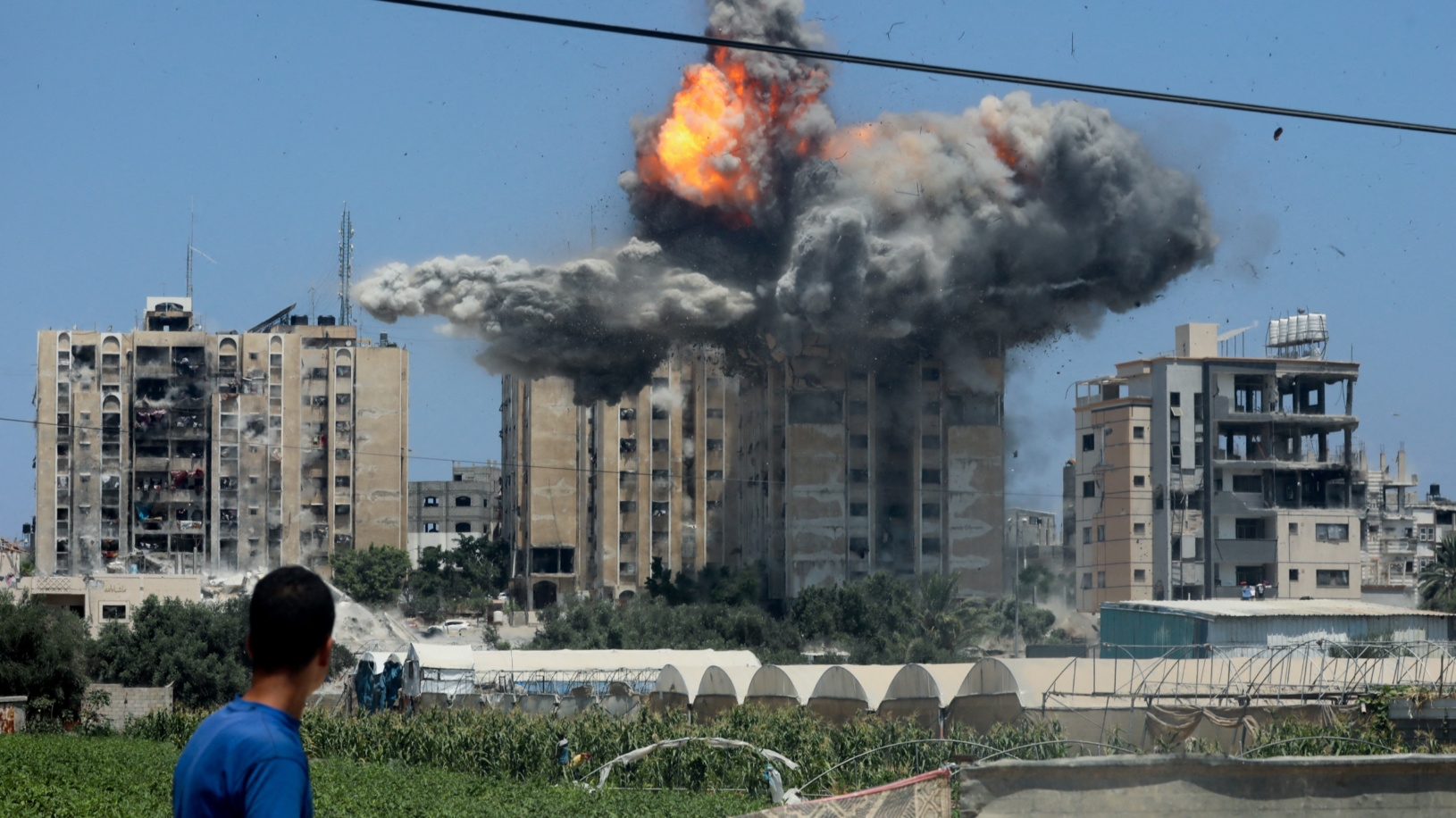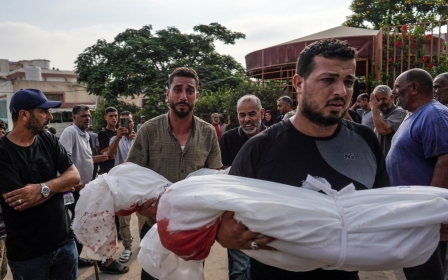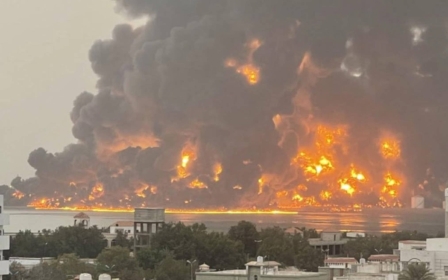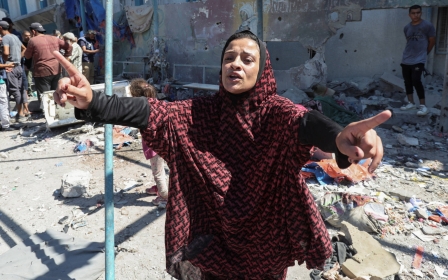War on Gaza: Israel bombing part of humanitarian zone in the south

The Israeli army has been carrying out a new operation in the previously designated humanitarian area of Khan Younis, in southern Gaza, since Monday morning.
Khan Younis's eastern neighbourhoods have been under heavy bombardment and at least 57 Palestinians have been killed, with 49 of them taken to Nasser Medical Complex, located in the southern city, according to the Gaza-based government media office.
Doctors and health officials at the hospital have been urging locals for blood donations, as large numbers of casualties continued to rush to the facility.
“The situation in the Nasser Medical Complex is out of control. We have been receiving hundreds of casualties and mortalities within or during three hours. Our situation is very bad. We need to be supported by medical supplies and instruments,” spokesman Mohammed Sakr was quoted as saying to al-Jazeera.
“We are swimming in a pool of blood,” he added.
New MEE newsletter: Jerusalem Dispatch
Sign up to get the latest insights and analysis on Israel-Palestine, alongside Turkey Unpacked and other MEE newsletters
At least 172 people have been injured in within 10 hours since the bombomings have started, the government media office said, adding that it has received more than 1,200 appeals for help from families asking to be rescued.
“This morning, the Israeli occupation army began a new aggression against Khan Younis governorate committing crimes against humanity through indiscriminate bombing of citizens’ homes and groups of displaced people in the area,” the office said in a statement.
The strikes have also targeted a tent of journalists in Al-Aqsa Martyrs hospital, located in Deir al-Balah in central Gaza, where at least one journalist has been killed and dozens wounded.
According to the Gaza-based government media office, at least 163 journalists have been killed since the war broke out on 7 October.
Also in Deir al-Balah, the Palestinian Wafa news agency reported that the Israeli bombing struck a family house, killing at least two Palestinians and wounding others.
The Israeli army ordered the evacuation of eastern neighbourhoods of Khan Younis in preparation for a new offensive on the area it had designated a humanitarian zone. The Palestinian Civil Defence says the area shelters more than 400,000 Palestinians.
Israel started bombing the area minutes after it sent out the evacuation orders, which come days after the Israeli army killed over 90 displaced Palestinians in an attack on al-Mawasi refugee camp nearby.
The Israeli military accused Hamas of firing at Israeli troops from the location, and said it was "adjusting" the humanitarian zone to target the Palestinian group there.
"The [Israeli army] is about to forcefully operate against the terror organisations and therefore calls on the remaining population left in the eastern neighbourhoods of Khan Younis to temporarily evacuate to the adjusted humanitarian area in al-Mawasi," the military said in a statement.
Meanwhile, Hamas denounced the shelling, saying that it will not prevent Palestinians from staying "steadfast in their land".
“We call upon the international community and the United Nations to urgently intervene to stop the systematic Zionist killing of our people, who are facing a genocide,” Hamas said in a statement on its Telegram channel.
On Sunday night, Gaza’s Civil Defence reported that its crews had recovered the bodies of three people and rescued several others wounded after the Israeli army targeted a residential apartment in the al-Tuffah neighbourhood of eastern Gaza City.
Middle East Eye delivers independent and unrivalled coverage and analysis of the Middle East, North Africa and beyond. To learn more about republishing this content and the associated fees, please fill out this form. More about MEE can be found here.




